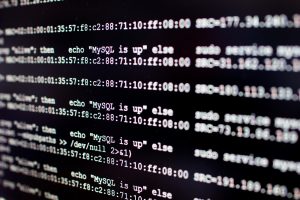
In this comprehensive guide, we will walk you through how to fix the “sudo: a terminal is required to read the password” error in Ubuntu. This error typically occurs when you try to execute a sudo command in a non-interactive shell.
To fix the "sudo: a terminal is required to read the password" error in Ubuntu, you can modify the sudoers file to allow the web server user (www-data) to execute only the specific script you need, rather than granting access to all commands. Alternatively, you can use the -S option with the sudo command to provide the password through standard input. However, it is important to note that both approaches have security risks and should be used with caution.
Understanding the Error
First, let’s understand what the error means. When you execute a PHP script through a browser, it runs under the www-data user, not your own user. Therefore, the error arises because the www-data user does not have the required sudo access.
However, before we proceed, it’s important to note that giving sudo access to the web server user can be risky, especially if the environment can be accessed by anyone. It’s always recommended to find an alternative solution that does not require sudo access.
Modifying the Sudoers File
If there’s no other option but to use sudo, you can modify the sudoers file to allow the www-data user to execute only the specific script you need, rather than granting access to all commands.
To edit the sudoers file, you can use the visudo command. This command opens the sudoers file in the system’s default text editor and performs syntax checking when you save and close the file.
sudo visudoIn the sudoers file, add the following line:
www-data ALL=NOPASSWD: /path/to/your/scriptReplace /path/to/your/script with the actual path to your script. This line gives the www-data user permission to run the specified script as any user without requiring a password.
Please note that this approach is still considered risky, as any bug or vulnerability in the script could potentially allow users to modify the script and gain full access to the operating system.
Using the -S Option
Another approach is to use the -S option with the sudo command. This option allows you to provide the password through standard input. However, this method is not recommended as it can pose security risks, especially if the password is hardcoded in the script or passed through insecure means.
Here’s how you can use the -S option:
echo 'password' | sudo -S commandReplace ‘password’ with your actual password and ‘command’ with the command you want to execute.
Conclusion
In summary, it is important to carefully consider the security implications of granting sudo access to the web server user. Whenever possible, explore alternative solutions that do not require sudo access. If sudo access is necessary, restrict it to the specific script rather than granting access to all commands.
Remember, security should always be your priority when dealing with system administration tasks. Always evaluate the risks and benefits before making changes to your system’s configuration.
For more information on using sudo and the sudoers file, you can refer to the official Ubuntu documentation.
The sudo command in Ubuntu is used to execute commands with superuser (root) privileges. It allows regular users to perform administrative tasks without logging in as the root user.
This error typically occurs when you try to execute a sudo command in a non-interactive shell, such as when running a PHP script through a browser. The www-data user does not have the required sudo access in such cases.
Granting sudo access to the web server user can be risky, especially if the environment can be accessed by anyone. It is always recommended to find alternative solutions that do not require sudo access.
To modify the sudoers file, you can use the sudo visudo command. Add the line www-data ALL=NOPASSWD: /path/to/your/script to grant the www-data user permission to run the specified script as any user without requiring a password. However, note that this approach is still considered risky.
The -S option allows you to provide the password for the sudo command through standard input. However, this method is not recommended as it can pose security risks, especially if the password is hardcoded in the script or passed through insecure means.
For more information on using sudo and the sudoers file, you can refer to the official Ubuntu documentation on sudo and sudoers.







